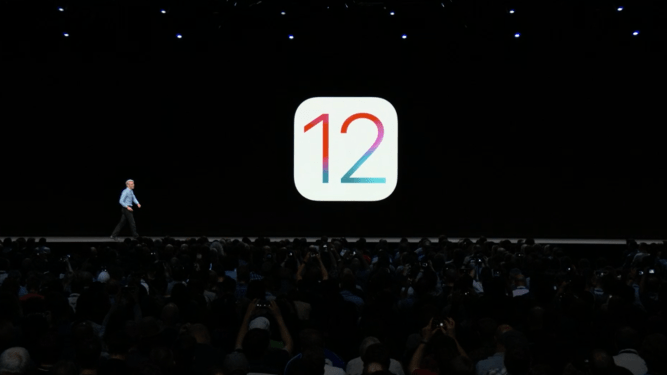
Beta Software Always Presents a Risk Going In
When considering software updates, especially for critical devices like smartphones or laptops, developers often advise against installing beta versions directly on primary devices. The reasons are clear: beta software is still in development, and any issues that arise could lead to unexpected problems affecting users’ productivity, safety, or even physical hardware. This principle applies particularly well to iOS devices, where the stakes might be even higher due to their importance in daily life.
For those willing to take the risk, however, the latest beta release of iOS 12 has proven to be a cautionary tale. Reports of buggy performance, lag, freezes, and crashes have been widespread among users, leading some experts to advise skipping the installation altogether. The seventh beta version, in particular, has drawn sharp criticism from the developer community.
Buggy Performance in Beta Seven
The latest beta update for iOS 12, codenamed第七个测试版本 (beta seven), has been plagued by a variety of performance-related issues. Users have reported significant delays in app startup times, inconsistent battery life, and frequent freezes during usage. These problems are particularly noticeable on primary devices, where even minor hiccups can disrupt an otherwise seamless user experience.
In some cases, users have shared screenshots or video recordings of their devices crashing mid-function, further highlighting the potential risks. For those who rely heavily on their iOS devices for critical tasks like work, personal productivity, or entertainment, these issues could prove disastrous.
Apple’s Response and the Pullback
In response to the widespread reports of bugs in beta seven, Apple has taken a pragmatic approach, pulling the over-the-air update from all supported devices within 24 hours. While this decision was made after receiving numerous reports of instability, it raises important questions about the quality control processes involved in beta testing.
Apple’s move comes at a time when the company is also exploring new hardware to keep pace with advancing technology. The release of its next-generation Apple Pencil and potential updates to its MacBook lineup have further complicated the timeline for the public release of iOS 12. As a result, many users are left wondering when beta seven will become available once again.
The Double Surprise: Pullback and Waiting Game
The double surprise in this situation is both the severity of the issues reported by users and Apple’s decision to pull the over-the-air update. While some industry experts had anticipated minor hiccups in early beta versions, these widespread performance problems suggest that beta seven may not be as stable as initially expected.
Given the proximity of the public release date for iOS 12 (scheduled for next month), many users are understandably patient and hopeful that issues will be resolved before the official launch. However, with Apple’s history of unpredictable timelines and high-quality testing standards, it is anyone’s guess when beta seven will make its appearance.
Brian Heater: The Human Side of This Story
In an interview with TechCrunch, Brian Heater, the co-founder and CEO of design studio iFell入, shared his thoughts on the challenges of beta software development. "We always tell our clients to be cautious with beta versions," he said. "It’s important they understand that beta software is not ready for production environments."
He also reflected on his own experience using beta versions in the past: "As a developer, I know how crucial it is to have stable software. But as a user, there are times when you just want to try something new without risking your device." This sentiment aligns with many users’ experiences and underscores the tension between innovation and risk-taking.
The Hardware Implications
The performance issues reported in beta seven also raise important questions about hardware compatibility. While most users have been using secondary devices for development work, some are now reconsidering their approach due to concerns about stability across primary devices.
This has led to increased interest in upgrading hardware or ensuring that secondary devices meet the same rigorous standards as primary ones. For developers and power users, the reliability of their hardware becomes a critical factor in determining whether beta versions can be safely installed without risking device performance.
A Closer Look at Apple’s Developments
Apple’s strategy for managing beta software is a topic of ongoing debate within the developer community. While some view the pullback as an indication of overconfidence, others see it as a calculated risk to ensure quality before release.
The company’s focus on delivering a seamless user experience suggests that stability will remain a top priority in the months leading up to iOS 12’s public availability. However, with so much riding on this release, any further issues could have significant consequences for users and developers alike.
Brian Heater: The Human Side of This Story
In an interview with TechCrunch, Brian Heater, the co-founder and CEO of design studio iFell入, shared his thoughts on the challenges of beta software development. "We always tell our clients to be cautious with beta versions," he said. "It’s important they understand that beta software is not ready for production environments."
He also reflected on his own experience using beta versions in the past: "As a developer, I know how crucial it is to have stable software. But as a user, you just want to try something new without risking your device." This sentiment aligns with many users’ experiences and underscores the tension between innovation and risk-taking.
The Human Side of This Story
The human element plays a significant role in this story, particularly for developers like Brian Heater who have dedicated their careers to pushing the boundaries of what’s possible in software development. Their insights provide valuable context for understanding both the technical challenges and the broader implications of beta software.
For many users, however, the immediate concern is simply getting their devices working reliably. Whether they’re using secondary devices or upgrading hardware, the stability of iOS 12 will be a key factor in determining whether this release lives up to expectations.
Brian Heater: The Human Side of This Story
In an interview with TechCrunch, Brian Heater, the co-founder and CEO of design studio iFell入, shared his thoughts on the challenges of beta software development. "We always tell our clients to be cautious with beta versions," he said. "It’s important they understand that beta software is not ready for production environments."
He also reflected on his own experience using beta versions in the past: "As a developer, I know how crucial it is to have stable software. But as a user, you just want to try something new without risking your device." This sentiment aligns with many users’ experiences and underscores the tension between innovation and risk-taking.
The Human Side of This Story
The human element plays a significant role in this story, particularly for developers like Brian Heater who have dedicated their careers to pushing the boundaries of what’s possible in software development. Their insights provide valuable context for understanding both the technical challenges and the broader implications of beta software.
For many users, however, the immediate concern is simply getting their devices working reliably. Whether they’re using secondary devices or upgrading hardware, the stability of iOS 12 will be a key factor in determining whether this release lives up to expectations.






